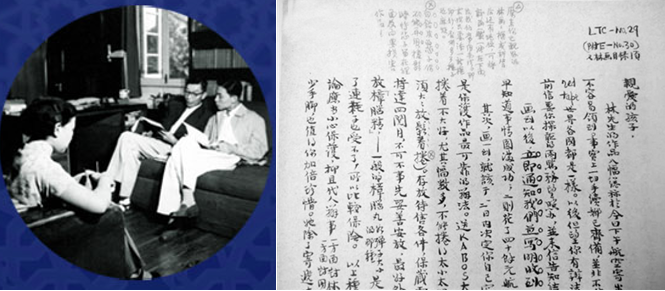
A friend told me that she was poignantly inspired by Fu Lei’s Family Letters, a chronicled compilation of correspondence between the eminent essayist and translator Fu Lei and his only son Fu Cong, a late virtuoso pianist, who was then studying music in Poland.
She said that apart from those knowledgeable discussions of aesthetics and music theory that ram home how hollow her mind is, the book gives off a peculiar vibe that somehow makes her feel lost: freed by modern technology, today’s people have in turn been tied down by an intangible web of wires, and meanwhile foregone that old-school luxury of reading, then reading again and again, family letters carefully scribbled by their faraway loved ones.
On one hand, modern tools like phones, Wechat and Skype do facilitate communication among distant family members, easing their pain of homesickness. But on the other hand, the more tangible contact through voice and image has also deprived people of a warmth and tenderness that can only be sensed through some sort of remoteness and imagination.
Just picture a scene where an old couple read in a glow of light an unfolded letter sent by their child who wrote it somewhere far away from home, from where he or she had been thought of every single day. That feeling, wistfully happy, can not be replaced by some ten-minute phone call. Fu Lei once encouraged his son to write letters more often by citing a line from one of Tu Fu’s poems: A family letter is worth a fortune.